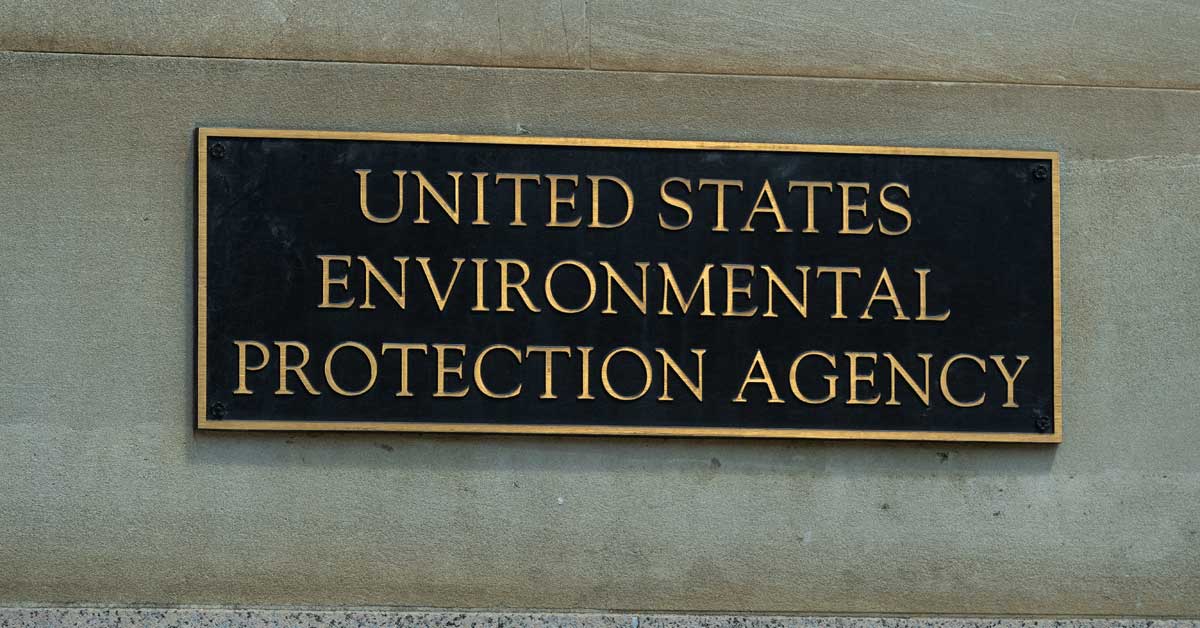4 min read
Implications of the US EPA’s Proposal to End GHG Reporting on Biofuels
ResourceWise
:
Sep 19, 2025 10:53:42 AM

In a significant regulatory shift, the US Environmental Protection Agency (EPA) has proposed ending the greenhouse gas (GHG) reporting program for multiple industries, including biofuels. According to an official statement, the move is positioned as a way to reduce the financial burden on businesses and allow them to focus on growth and innovation rather than regulatory compliance.
However, beyond the immediate cost-saving implications, this proposal has far-reaching consequences for both the domestic biofuels market and international trade.
In this post, we’ll delve into what this announcement means for the US biofuels sector, explore the possible ramifications on global trade, and highlight why the lack of GHG reporting could complicate international biofuels markets.
The EPA’s Announcement: What You Need to Know
In August, the EPA unveiled its proposal to eliminate the mandatory reporting of GHG emissions for thousands of US facilities, including biofuel production plants. The organization’s reporting program, established in 2009, was designed to track the emissions of major industrial facilities that emit large quantities of greenhouse gases. By ending this program, the EPA claims it will save US businesses $2.4 billion annually in compliance costs.
The EPA's rationale is based on reducing what it describes as "burdensome" and "costly" regulations. According to the agency, these regulations impose unnecessary barriers to businesses striving to innovate and expand.
It’s also important to note that this will impact not only biofuel plants but also oil refineries, chemical manufacturers, and large industrial operations.
Proponents of the plan argue that this deregulation is vital for boosting economic growth. This holds especially true in sectors like biofuels, where smaller producers struggle with the compliance costs of reporting emissions.
However, many industry members fear that this deregulatory step sends the wrong message on climate action and accountability. While it may reduce immediate costs for businesses, the absence of GHG reporting could undermine the US’s long-term commitment to environmental responsibility. The move could leave markets more vulnerable to environmental scrutiny both at home and abroad.
How This Proposal Could Impact the US Biofuels Market
The US biofuels market stands at a crossroads, and this EPA proposal could be a double-edged sword.
On the one hand, the reduced regulatory burden could provide a temporary financial reprieve for biofuel producers. This would likely benefit small and mid-sized companies.
By eliminating the need to report emissions data, biofuel producers would save time, resources, and money. These resources could be reinvested into production capacity or other growth initiatives. This would likely stimulate domestic production, increase biofuel availability, and even make US biofuels more cost-competitive in the short term.
Yet on the other hand, the proposal’s potential benefits are far more complex than they appear.
Reduced emissions reporting may limit transparency, making it more challenging to track progress toward sustainability goals. This lack of transparency could erode the US biofuels sector’s credibility with consumers and investors who increasingly demand clear, reliable sustainability metrics.
The market for sustainable biofuels is deeply tied to its environmental credentials. Without emissions data, US biofuel producers might struggle to prove the low-carbon benefits of their products.
In addition, many US biofuel producers may face difficulty aligning with international market expectations, particularly in regions like Europe. The EU has stringent regulations around the sustainability of biofuels, including requirements for detailed GHG emissions data. US producers could find themselves at a disadvantage by facing trade barriers or losing access to lucrative international markets.
While the immediate cost savings are appealing, the long-term impact of reduced transparency could ultimately hinder the growth of US biofuels in a competitive, globalized market.
Global Implications and Risks of Unreported GHGs
While the EPA's proposal is framed as a deregulation effort aimed at boosting US economic growth, it could have significant repercussions on international biofuels trade. The absence of domestic GHG reporting would likely place US biofuels at a disadvantage in global markets. The effects would be most evident in regions that have stringent environmental standards for imported fuels.
The European Union, for example, has very strict requirements under its Renewable Energy Directive (RED II and RED III). The directive mandates that biofuels imported into the EU must meet sustainability criteria, including proof of reduced GHG emissions.
The EU requires biofuel producers to submit verifiable data on their products' carbon intensity. This requirement ensures that biofuels contribute to emissions reduction goals.
Without comparable reporting practices in the US, it will be more difficult for US producers to prove the sustainability of their products. The fallout from the omissions could potentially lead to compliance challenges down the road.
Moreover, other global markets, such as those in Canada, Japan, and South Korea, are also adopting similar sustainability measures for biofuels. These regions increasingly prioritize low-carbon and sustainably sourced fuels. US biofuel producers could face increased administrative hurdles in meeting these standards if they cannot provide sufficient emissions data.
The lack of required reporting could also raise doubts among international buyers about the true environmental impact of US biofuels.
In the worst case, this could lead to market access restrictions, delays in trade agreements, or even tariffs on biofuel exports. Competitors from regions with stringent reporting requirements (such as the EU) that can demonstrate more comprehensive sustainability credentials would have a global advantage.
Navigating the Future of Global Biofuels
The US EPA's proposal to end GHG reporting may offer short-term financial relief to many US biofuel producers. But it raises serious questions about the long-term viability of the sector in the context of a global push toward transparency and sustainability.
International markets will continue to prioritize GHG emissions data. The absence of this information from US producers could create barriers to trade and limit growth opportunities.
But this proposal is not the end of the road for the biofuels industry by any means. The global biofuels market is continuing to evolve, and the trend toward more stringent environmental standards is only likely to intensify.
Biofuel producers in the US will need to find ways to meet international sustainability expectations and maintain transparency. This will hold true even if domestic regulations loosen. By embracing innovation and sustainability, the US biofuels sector can continue to play a key role in the global transition to cleaner energy.
While the EPA’s proposal poses challenges, it also offers an opportunity for US biofuel producers to take proactive steps toward global competitiveness. By ensuring that their products align with international sustainability standards, US producers can help drive forward the global biofuels market and contribute to the fight against climate change.
Need more insights on the where the biofuels market is heading through 2025 and into 2026? Check out our on-demand webinar, Finding Feedstoks: Biofuels Outlook Q4 2025.





